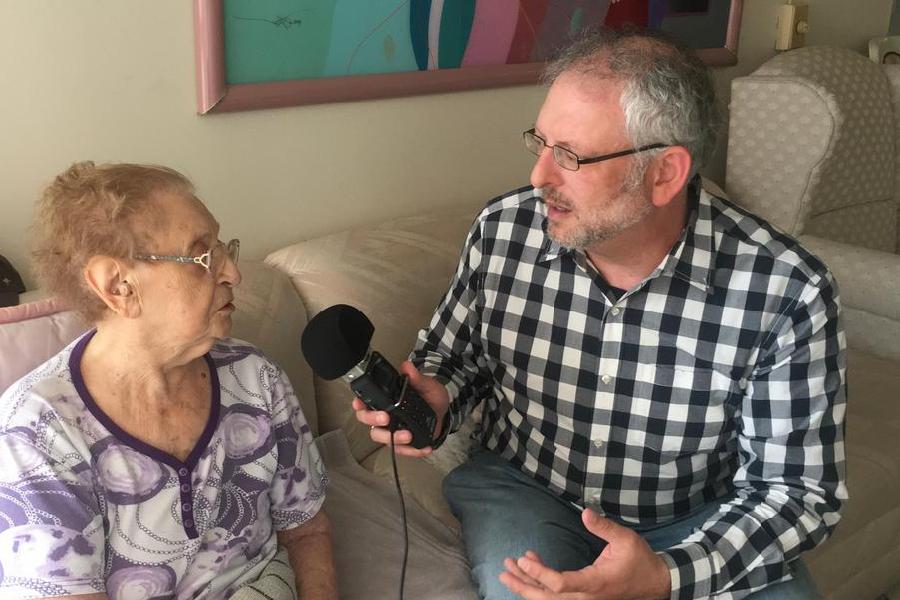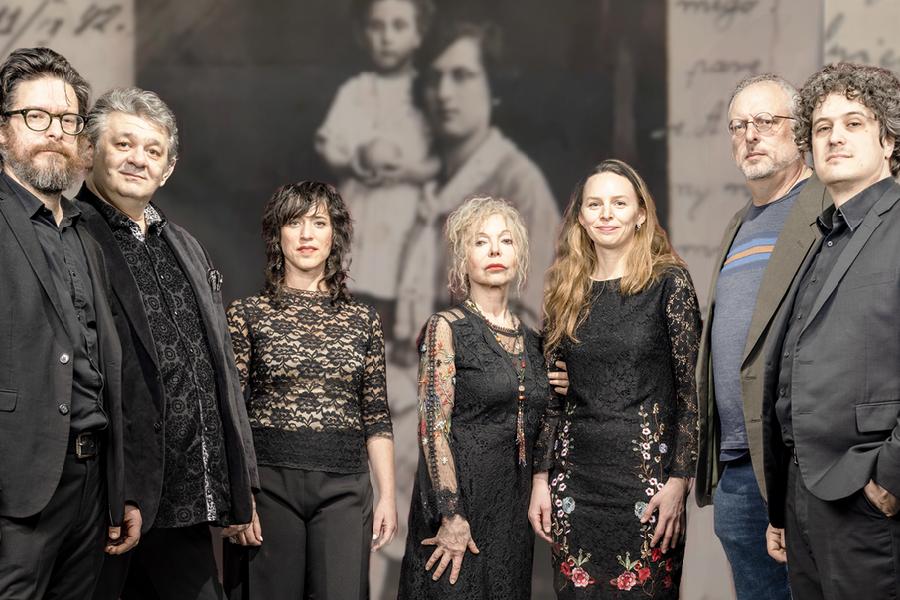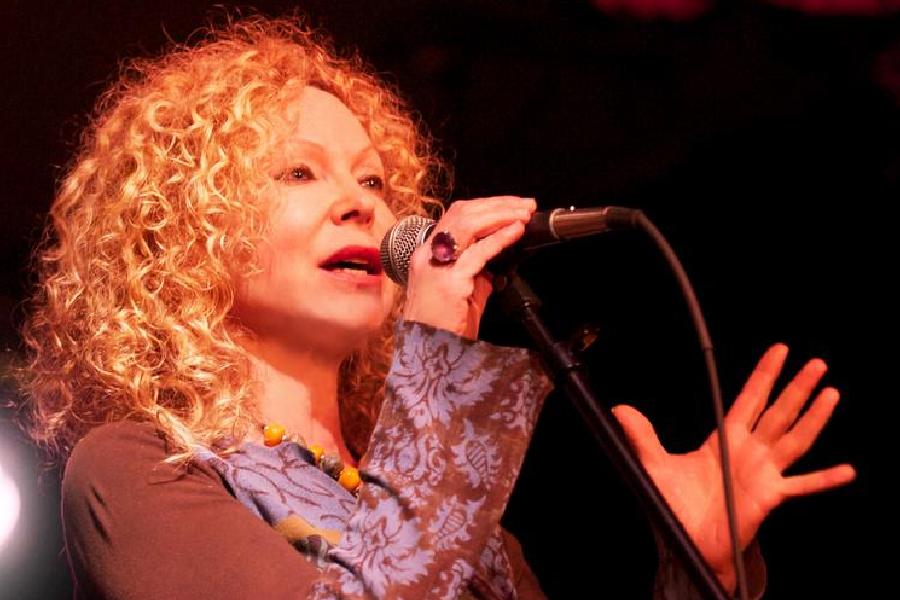When psychologist Paula David started her new job as a social worker in the Baycrest Centre, a Jewish home for assisted living for seniors in Toronto, Canada in the early 1990s, she had no idea what she was in for.
Although she had been trained in group trauma therapy, the field of study was not as developed as it is today.
Meanwhile, the 14 elderly women who met her regularly for group therapy were all survivors of the Holocaust from Eastern Europe.
The women did not initially want to speak about their childhood and youth.
"In the beginning, they told me very clearly that they cannot tell these stories, that they had no words for them," said David.
Instead, the psychologist spoke to the participants about their daily lives, their children and their grandchildren for a year.
Over time, some of the women were showing early symptoms of dementia, meaning their earlier, traumatic memories were clearer than more recent experiences.
Finally the "dam broke," as David said once in a TV interview. Now that the women trusted her, she heard shocking testimony of human experiments, torture, the loss of children or other close relatives, of sexual abuse, terrible hunger, sickness and forced sterilization.
From Holocaust shame to poetry
Until then, these women had not even shared their stories with their closest relatives.
"It was the time before "Schindler's List," David told DW, referring to the 1993 hit film that shone a light on the horrors of Nazi genocide against European Jews. "One did not speak so much about the Holocaust. At the time the topic was still loaded with shame."
Every now and then there were breakthroughs with the group — but also setbacks.
"Often we were overloaded," David said. "Then we needed lots of cups of tea and spoke about other themes for some time."
David began recording the reports and transcribing them at home. She realized that the participants, whose mother tongue was not English, used a syntax, melody and vocabulary that was completely different from those born in Canada.
The language they used was "infinitely more powerful than I could have expressed it," David said. She wrote down the sentences and organized them thematically. And in this manner, poems came into being which she presented to the group.
The women could hardly believe they were listening to their own words. One said: "I can't even write, forget composing poems!", Paula David remembers. Realizing that these really were their own texts filled them with great pride.
The poems gave the Holocaust survivors and David a structure, and they became kind of an emotional outlet for all of them. "We became poets," the psychologist remembers.
The group therapy sessions became such an important fixture in the women's lives that they worked family meetings and hairdresser appointments around them in order to be able to attend, David says.
Surviving the Jewish ghettos
Many years later, in 2019, David met journalist and music producer Daniel Rosenberg. He was deeply involved with the story of Molly Applebaum at the time. Applebaum had experienced a similar fate as the women in Baycrest.

Molly Applebaum (left) recalls stories of impossible survival to Dan Rosenberg Deutsche Welle
In 1942, Molly began writing her diary as a 12-year-old. In it, she related how she had survived the extermination of the Jews in the Polish ghettos because she and her older cousin were hidden by a Polish farmer in a wooden crate that was buried in a stable. The girls could only leave the box at night. Often they were covered with insects, lice and dirt.
Molly's mother was shot dead in a ghetto in Tarnow, and Molly never saw her younger brother and stepfather again. Molly's diary, "Buried Words," was published in 2017. Today, she is 92 years old and lives in Toronto.
Rosenberg decided to make a music album out of Molly's diary entries and the stories of the women at Baycrest. Not with English lyrics though, but instead in Yiddish and Polish — the languages that the women spoke as children and in their youth.
The music would also have to match, so Rosenberg decided to work with Olga Avigail Mieleszczuk, a leading Polish tango expert.
Before World War II, tango was one of the most popular music genres in Poland. It was infused with elements from Klezmer and Roma music. The era ended after World War II began. Its famous protagonists, lyricist Andrzej Wlast and composer Artur Gold, were both killed in Treblinka.
Creating songs from poems
Nine songs fill the album, "Silent Tears: The Last Yiddish Tango." Four are originals from the 1930s, composed by Artur Gold. The rest are new compositions by Rebekah Wolkstein and Oscar Strock. The songs are interpreted by the Canadian chamber orchestra Payadora Tango Ensemble, and the accordionist Sergiu Popa.
The texts by Applebaum and the Baycrest group are sung by Lenka Lichtenberg, Olga Avigail Mieleszczuk, Aviva Chernick and Marta Kosiorek.
The Canadian singer Lenka Lichtenberg, who is originally from Prague, sings two songs. Lenka's mother and grandmother were prisoners in the Theresienstadt concentration camp, and her grandfather died in Auschwitz. In her 2022 album "Thieves of Dreams", she recalls the experiences of her grandmother after discovering her poems in a desk drawer in her former home in Prague. Lichtenberg recently won a Juno, the Canadian grammy, for her album.
Lichtenberg is a professional, but "Silent Tears" was still a challenge, she told DW, especially the piece "A Victim of Mengele."
"I have been singing since I was nine years old, but I had never heard such a horrible subject," she said. "I asked myself: How can I sing something like this?"
For days she sat at her piano, "tearing her hair out", working her way into the song. Her goal was to find the right balance. As she says, "To give the song the emotion that it needs without being overwhelmed by it." In the end she found exactly the right tone.

Performers featured on 'Silent Tears': (l-r) Joseph Phillips, Robert Horvath, Aviva Chernick, Lenka Lichtenberg, Rebekah Wolkstein, Dan Rosenberg, Drew Jurecke Deutsche Welle
Topping the world music charts
In March 2023, "Silent Tears" climbed the charts and reached number 1 in the European World Music charts. International media outlets including Canada's CBC, Germany's Deutschlandfunk Kultur and Austria's ORF reported on the album.
Music producer Rosenberg told DW how he and Molly Applebaum's daughter Sharon Wrock were more than astonished by this.
"Eighty years ago, when Molly was buried underground on that farm in Poland, keeping a diary of the horrors she was experiencing, Hitler controlled radio stations across Europe," he said.
"Now, Molly’s words are being broadcast as music across those same channels in Austria, Germany, Belgium, Italy, Czechia, Croatia, Latvia and more. We both nearly broke into tears trying to wrap our heads around this."
Meanwhile, the women from Paula David's original group at the Baycrest Centre have all passed away. But many other groups have evolved since then. David is happy that the Holocaust survivors have found a new life with "Silent Tears."
Now, the story of these women is being heard all over the world, in the languages the women spoke as children and in words that were forcibly taken away from them.
"Silent Tears" is an important musical document. Especially today, with antisemitism on the rise again.
World music award for 'impressive testimony to Jewish culture'
Germany's largest folk-roots-world music festival, held in Rudolstadt, Thuringia, is now honoring "Silent Tears" with the Ruth world music award, which has been awarded annually since 2002.
"Silent Tears" is an impressive testimony to Jewish culture as well as to Germany's past and its duty to remember the atrocities committed during World War II, said Bernhard Hanneken, artistic director of the festival.
Poems and music take the survivors' stories to a new level and give the experiences and traumas reflected in the texts a deeply moving and often disturbing emotionality, he added. "It is the merit of this project that it breathes life into these memories and poems and is able to pass on the messages they contain to future generations."
The accolade, with €5,000 in prize money, will be awarded on July 6 in Rudolstadt.











